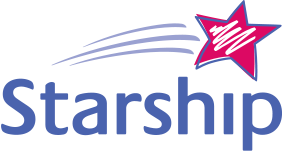Transitioning to adult palliative care

About transitioning from paediatric to adult palliative care services
The development of life-prolonging therapies has led to an increasing number of children with life-limiting illnesses surviving into adolescence and adulthood. As these children become adolescents or young adults, they require transition into adult palliative care services.
Transition is patient-centred and happens in 3 phases. General practice plays a key role.
Phase 1 - Preparing for adulthood and planning transition to adult services
Paediatric palliative care team:
Identify and consider patients for transition from age 12 years, aiming for the young person to be fully transitioned to adult services by age 18 years
Discuss transition with the young person and their family/whānau. Provide Parent/Caregiver checklist and Young Person checklist
Arrange a multidisciplinary meeting between paediatric palliative care, adult palliative care, children's community nurse, adult district nurse, and general practice team
Share with adult palliative care and general practice teams the patient's:
Summary letter (including medical condition, expected prognosis, social background, paediatric palliative care team involvement and current issues)
Checklists
Advance care plan (if one exists)
Refer to hospice or adult palliative care as appropriate
Adult palliative care team:
Review summary letter, checklists, and advance care plan if one exists
Identify a team member (social care team member or nurse) to be the key contact person for transition
Key contact attends multidisciplinary meeting
General practice team:
Review summary letter, checklists, and advance care plan if one exists
Identify a team member (general practitioner or nurse) to be key contact person for transition
Key contact attends multidisciplinary meeting
If there are any concerns, seek children's palliative care advice:
Duty phone: 021 823 424
Email: starshippallcare@adhb.govt.nz
Phase 2 - Preparing to step up to adult services
Paediatric palliative care team:
Arrange joint visits between the young person and their family/whānau, and paediatric palliative care, adult palliative care, and general practice teams. These may occur at general practice, or the key contact for the general practice team may attend visits off-site or via video-conference
Establish decision maker in the family or whanau through whom to communicate information
Continue using Parent/Caregiver checklist and Young Person checklist during joint visits to guide transition
Develop a crisis plan and/or advance care plan with the young person and their family/whānau, if one is not already in place
Adult palliative care team:
Attend joint visits
General practice team:
Attend joint visits at practice, off-site, or via video-conference
Gradually take over primary prescribing responsibilities, with guidance from paediatric palliative care team
If there are any concerns, seek children's palliative care advice:
Duty phone: 021 823 424
Email: starshippallcare@adhb.govt.nz
Phase 3 – Settling into adult services
Paediatric palliative care team:
Discharge the young person to primary care and adult palliative care.
Adult palliative care team:
Identify a key contact for the young person and their family/whānau
Become primary service for specialist support and advice
General practice team:
Identify a key contact for the young person and their family/whānau
Become the lead carer and primary prescriber
If there are any concerns seek advice from local adult palliative care service
Clinical resources
Auckland Palliative Care Transition Working Group:
Together for Short Lives:

Related:
